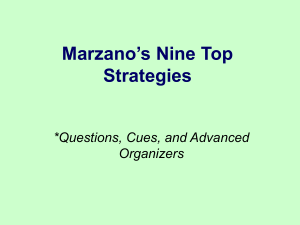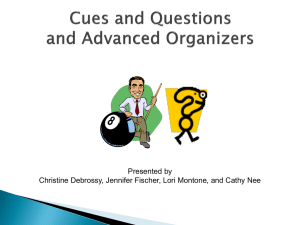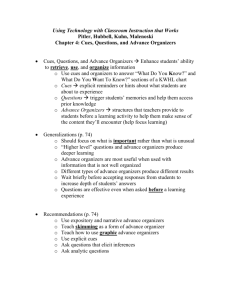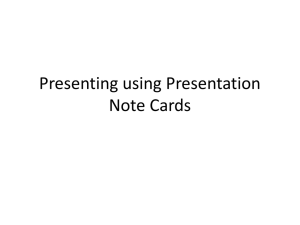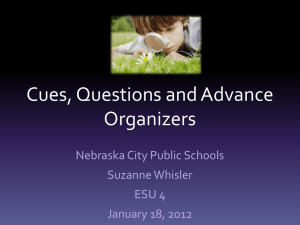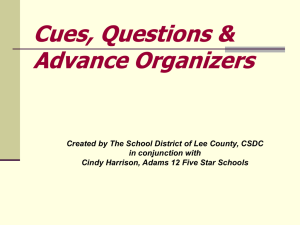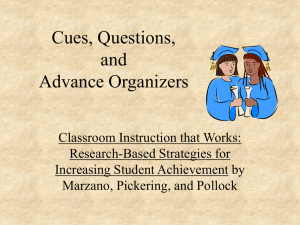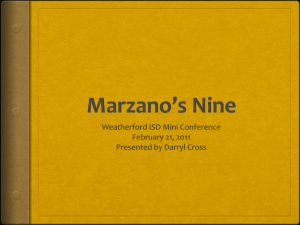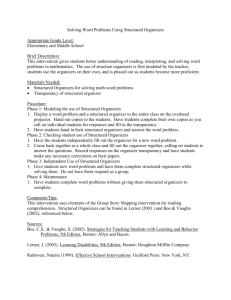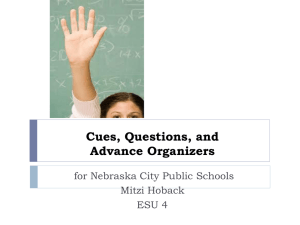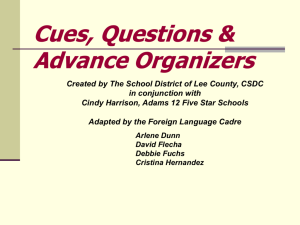Marzano's Strategies: Questions, Cues, Advance Organizers
advertisement
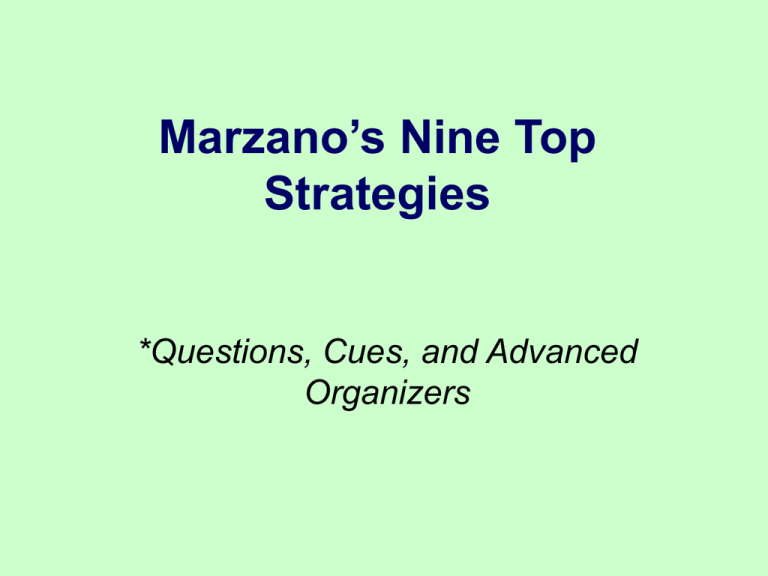
Marzano’s Nine Top Strategies *Questions, Cues, and Advanced Organizers Categories of Instructional Strategies That Affect Student Achievement Category Average Effect Size Percentile Gain Identifying similarities and differences 1.61 45 Summarizing and note taking 1.00 34 Reinforcing effort and providing recognition .80 29 Homework and practice .77 28 Nonlinguistic representation .75 27 Cooperative learning .73 27 Setting objectives and providing feedback .61 23 Generating and testing hypotheses .61 23 Questions, cues, and advance organizers .59 22 # 9 Cues, Questions, and Advance Organizers • Cues and questions should focus on what is important as opposed to what is unusual – Questions designed for deeper understanding will increase student interest • “Higher level” questions produce a deeper learning than “lower level” questions – Questions should require students to analyze information rather than just recall – Students should be asked to restructure information or apply knowledge in some way # 9 Cues, Questions, and Advance Organizers • Waiting briefly before accepting responses from students had the effect of increasing the depth of students’ answers • Questions are effective learning tools even when asked before a learning experience – Helps set the mental process of the learning experience # 9 Cues, Questions, and Advance Organizers • Explicit Cues: – provides students with a preview of what they are about to experience – Examples: • Things/ people: What is the process for making this thing? • Actions: How is the value of this thing changed by this action? • Events: What people are usually involved in this type of event? • States (of being): What is the basic process involved in reaching this state? # 9 Cues, Questions, and Advance Organizers Definition of Analytical Skills • Analyzing Errors – Identifying and articulating errors in the logic of information • Constructing Support – Constructing a system of support or proof for an assertion • Analyzing Perspectives – Identifying and articulating personal perspectives about issues # 9 Cues, Questions, and Advance Organizers • Examples of Analytical Questions – Analyzing Errors: • How is this information misleading? – Constructing Support: • What is an argument that would support the following claim? – Analyzing perspectives: • Why would someone consider this to be good (bad, or neutral)? # 9 Cues, Questions, and Advance Organizers • Advance Organizers: – Bridges the gap between what the learner already knows and what he needs to know • A.O. should focus on what is important • Higher level A.O.s produce deeper understandings • A.O.s are most useful w/ information that is not well organized • Different A.O.s produce different results # 9 Cues, Questions, and Advance Organizers • Expository Advance Organizer – Describes new content to be learned (analogy: annotated bibliography) • Narrative Advance Organizer – Presents information in story format (example: personal story) • Skimming Advance Organizer – Briefly becoming familiar with information (example: table of contents review) • Graphic Advance Organizer – Partially completed web as a preview to be completed as information is presented
